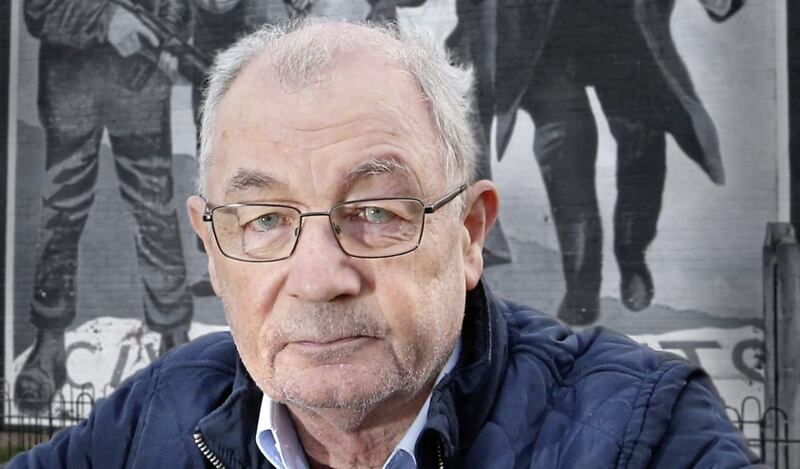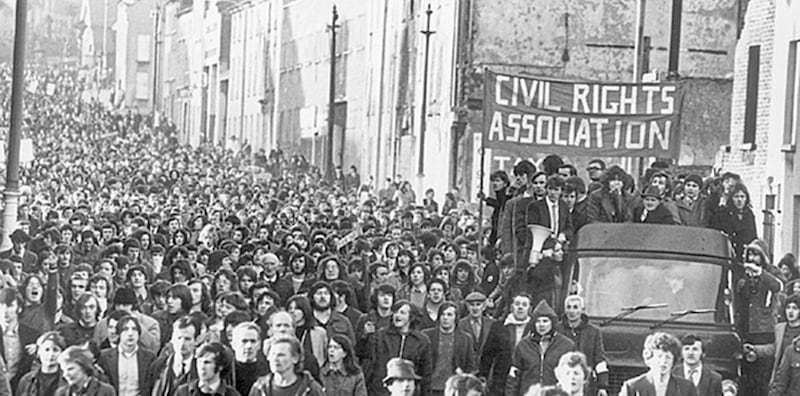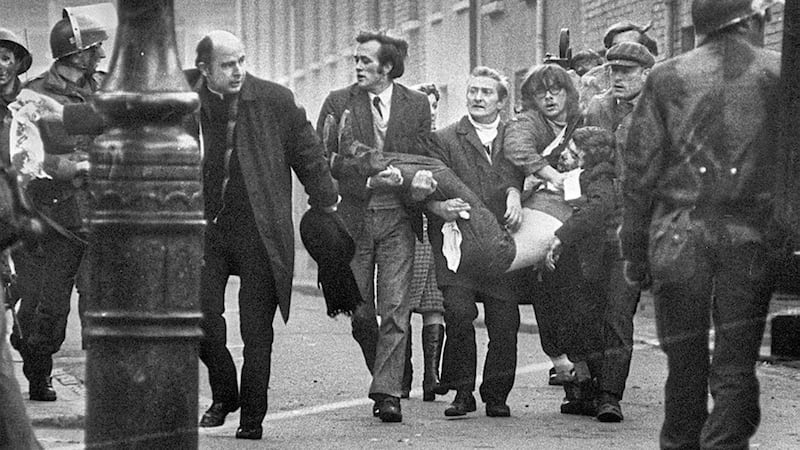Campaigners for Bloody Sunday justice set the example for many others through their decades of determination, one said.
Mickey McKinney's oldest brother Willie (27) set off with a camera over his shoulder to film the march.
The keen amateur photographer was shot in the back and never returned.
Mr McKinney said: "We were the light for possibly a whole lot of other families."
He said it was relatives who refused to give up who won court cases, borrowing the phrase from Saville Inquiry barrister Michael Mansfield QC.
"With our group and all the other people who lost people at the hands of the state, this is just a group of ordinary people with a lot of determination."
He was present but cannot remember hearing shots, just the panicked seconds when people ran and screamed.
"They were all running away, a lot of them were shot in the back.
"Our Willie was shot in the back."

He said British Government lies about the false culpability of the victims went around the world for 40 years.
His parents never heard the outcome of the Saville inquiry, when his brother was pronounced innocent.
"Does anybody have any sympathy for the families? That is where the sympathy should lie, not the soldiers," he said.
His brother John McKinney said old age should not bring immunity from prosecution and that those responsible should have been brought to justice in 1972 without a decades-long campaign by the families.
He added: "Because you wore a British uniform does not mean you should escape the law."

He said that in other cases people aged in their 70s and 80s were still being brought before the courts.
"Age does not matter, if you murdered someone you are entitled to face what you did.
"If the Government investigated the Bloody Sunday killings when it happened in 1972 there would be no need for a campaign after that.
"It is important now that these people are brought to justice and we are hopeful that there will be prosecutions next week."
He remembers standing at the living room window, aged eight, with his mother and waving his big brother goodbye.
"I actually cried after Willie, as we called him, that day as well.
"He put his camera across his shoulder and he walked across the street.
"I never thought for a moment that he would have been murdered in the way that he was just a couple of hours after he left the family home."
Willie McKinney worked at the Derry Journal newspaper office as a printer and was engaged to be married.
Mr McKinney added: "He was the oldest in our family as well... and I always looked up to Willie."
Julieann Campbell, whose uncle Jackie Duddy died, said her family was hopeful that prosecutions will be announced.
"We never actually thought we would see this day coming, so it's great that we're finally here," she said.
"It's been 47 years since the events of Bloody Sunday and crucially there was no police investigation at the time.
"So this is actually the only police investigation that's ever been conducted into Bloody Sunday.
"So we're very hopeful of a positive outcome."








